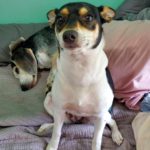Forum Question
In a world of disinformation, social media, and “alternative facts,” how do you identify and vet credible information sources? How do you share those credible sources with students and public library users? What is a librarian’s role in helping the greater community find common ground in shared facts?
In a world of disinformation, social media, and “alternative facts,” how do you identify and vet credible information sources? How do you share those credible sources with students and public library users? What is a librarian’s role in helping the greater community find common ground in shared facts?
Responses
Truth through knowledge
I believe librarians should return to being the curators of information. To fulfill this role, they must undertake training and education to be knowledgeable of subject areas and their sources. Librarians should use this knowledge to build collections (physical or digital) of high quality, reputable resources. They should also be able to direct users to other well curated collections. Librarians who are unable to identify credible sources would be better off seeking a different career.
Read the Full ResponseThe School Librarian's Role in Credible Information
The AASL Standards guide the school librarian's work in teaching media and information literacy skills to their students and also to teach students to value multiple perspectives. School librarians need to update their lessons for teaching these skills. A 2019 study from the Stanford History Education Group (https://purl.stanford.edu/gf151tb4868) found that students' website evaluation skills were "troubling." Their research shows that using acronyms (such as CRAAP) to teach evaluation and rules about 'URLs' does not work. Students need to be taught to pause before sharing, to click on links versus just reading headlines, to think critically, to use lateral…
Read the Full ResponseEthical Use of Information
In academic libraries, the ethical use of information is taught in reference to citing sources, giving authors credit, not plagiarizing, and following copyright laws. Sharing misinformation could also be considered an unethical use of information. Perhaps we should include pausing and verifying questionable information in the same instruction as other ethical information topics. I believe many people do not realize that sharing questionable information is an ethical issue and this may be beneficial to some library users.
Read the Full ResponseIn a world of disinformation, social media, and “alternative facts,” how do you identify and vet credible information sources? How do you share those credible sources with students and public library users? What is a librarian’s role in helping the greater community find common ground in shared facts?
Since I work with K-12 patrons I try to focus on getting students to do the following: 1. Take a "breath" before reacting to news 2. Don't share news stories until you have determined the story is legitimate 3. Be proactive when you share and post news, make sure it is from a valid source. The vetting process can take several avenues, I tell students to practice "lateral searching" to track down the source of news and media outlets. I also encourage investigating media sources on Wikipedia and tell them to pay special attention to the links in the bib…
Read the Full ResponseHow I identify and vet credible information sources: an example
Others have already posted about methodologies for evaluating information, especially with regard to information published on the web. I’d like to chime in with an example of a recent interaction in which I used a combination of lateral and vertical reading.
Someone asked me my views on election fraud. When I replied that I didn’t believe there was any significant fraud in the recent election, the person responded with generalized statements and accusations. Here’s an outline of what I did in response.
1. Focus on specifics, don’t respond to generalities. I asked the person to give…









